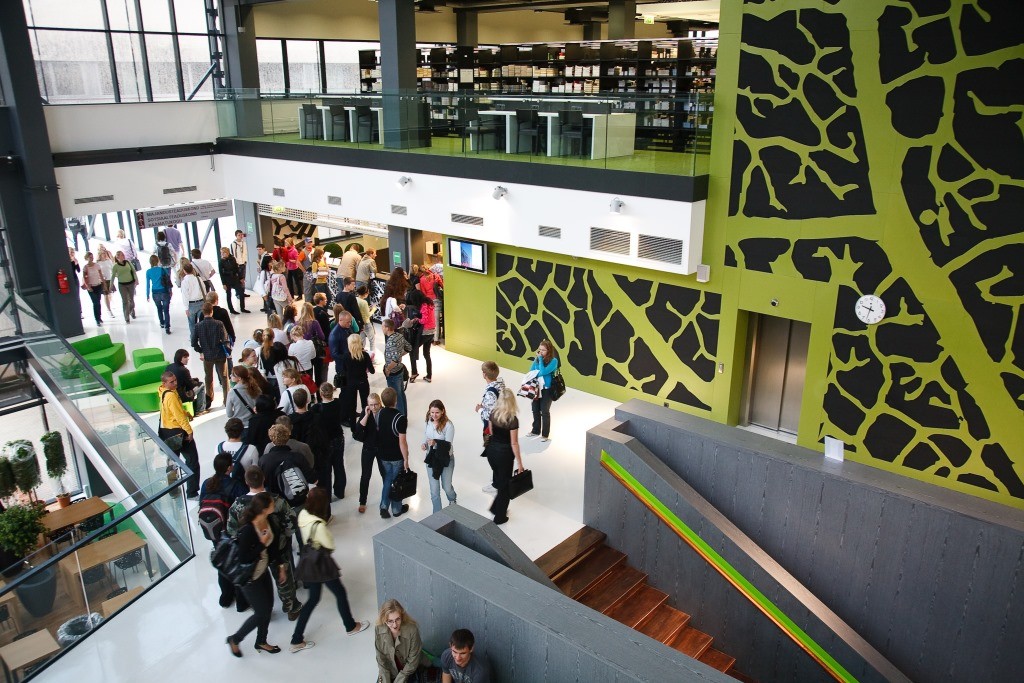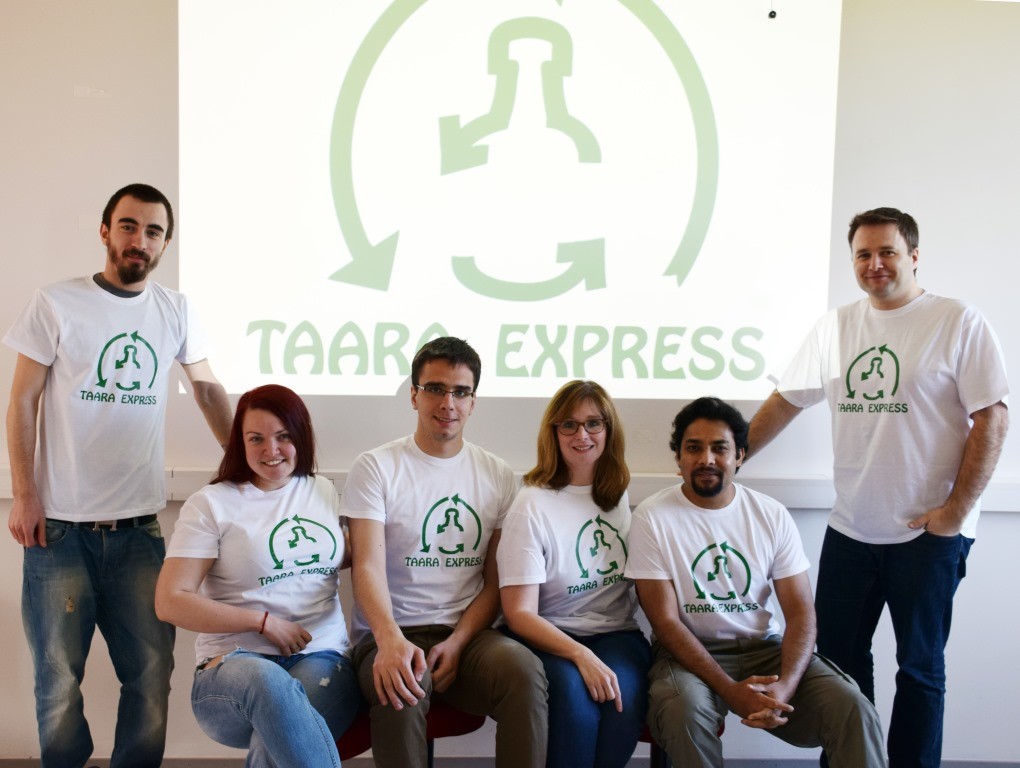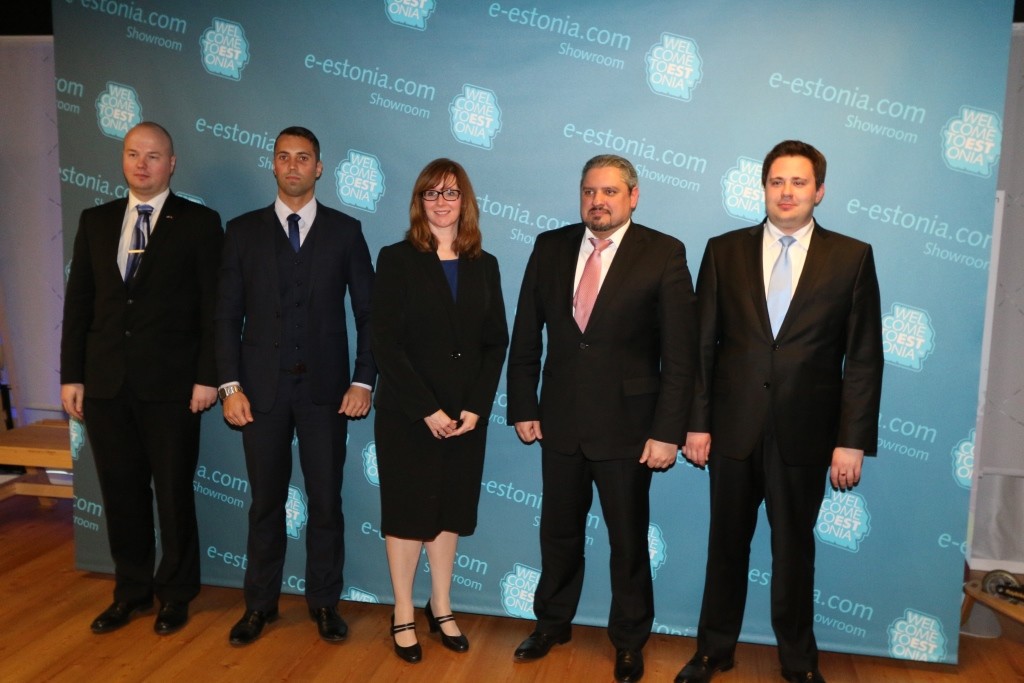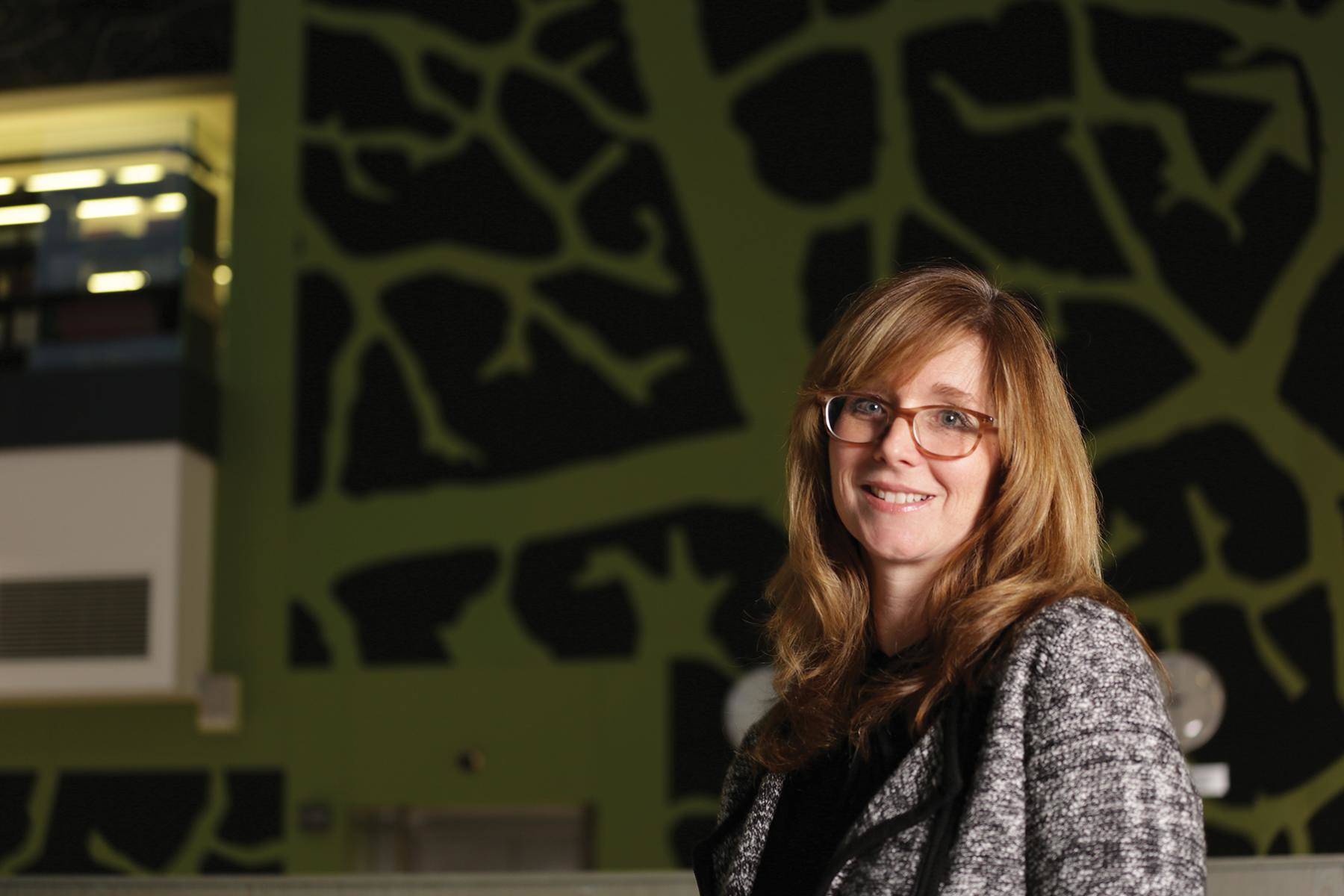International students have found Estonia on their path. One of them is Crystal LaGrone from Oklahoma, the United States. LaGrone is currently half-way through the e-governance technologies and services master’s programme at the Tallinn University of Technology (TUT).
In Estonia today, there are dozens of institutions offering higher education, including public and private universities, institutions of professional higher education and vocational schools. The University of Tartu is now among the top three per cent of the world’s universities, and the highest ranked in the Baltic states. Similarly, the Tallinn University of Technology, whose alumni include world-class startup entrepreneurs, has ranked among the 500 best universities in the world.
Higher education is open to all eligible students, at bachelor’s, master’s and doctorate levels. In the universities, many courses are taught in English and have drawn a wide variety of international students through the high quality of teaching and environment. According to the International Student Barometer (IBS), 89 per cent of international students at Estonian universities are satisfied with the quality of education on offer.
An agent for change
One of those international students, who have found Estonia on their path, is Crystal LaGrone from Oklahoma, the United States. LaGrone is currently half-way through the e-governance technologies and services master’s programme at the TUT. Developed in cooperation with the public and private sectors, the programme is listed as one of the priority curriculums in Estonia, even promoted by the tech-savvy Estonian president, Toomas Hendrik Ilves, among others.
LaGrone says the course has exceeded her expectations and she has become “an agent for change”, who wants to take the ICT to the next level in her home country, after being inspired in Estonia.
Her story is a curious one – first arriving in Estonia as a visitor with the Methodist Church three years ago, she instantly fell in love with the country. “I’m a true estophile now,” she says, warmly.
“I discovered that it is a very progressive country with a very advanced ICT and internet voting, specifically,” she adds.
“LaGrone says the course has exceeded her expectations and she has become “an agent for change”, who wants to take the ICT to the next level in her home country, after being inspired in Estonia.”
Being politically active since her youth, LaGrone believes internet voting will increase political participation and thus democracy, because it gives an opportunity to vote for those who otherwise might not have done it. Since Estonia became the first nation to hold legally binding general elections over the internet in 2005 – something that has become a norm now, while most countries, including the US, are still only contemplating about the possibility – LaGrone decided to learn first-hand how to implement changes, all with an aim to take this experience back home.
“I applied to the master’s programme here, even though I don’t have a tech background. But the university accepted people with diverse backgrounds: bachelor in law, public management, IT, economics or other related field. And I have to say that it really improves the dynamics of the class,” LaGrone explains.
“People at home asked me why on earth do you want go all the way over there to study. But it is because the curriculum is so unique,” LaGrone says.
“The difference is that in the US you can take e-governance, cyber security, computer science classes separately – but there is nothing that can combine all this. You may be able to piece them together, but you won’t have enough to make any sort of degree out of that. Here, it is already combined for you,” she adds.
Indeed, the master’s programme in e-governance technologies and services gives students broad knowledge about the makings of a modern state – the transition into e-governance, its management and development. The curriculum brings together science, practices and knowledge in these fields.
LaGrone observed that it is all very dynamic. “As we go along, they add new information and also ask feedback from the students – so we get to play part in putting the curriculum together, which is a very unique opportunity. On top of that, you have a chance to study in Estonia, where it is all implemented. We get to see the practicality. We got resident’s permits, so we can use the digital signatures, for example,” she notes.
Only two degrees of separation
The practicality of her studies is what LaGrone emphasises the most. “Back in March, during the last parliamentary election, I got to meet the people who actually implemented internet voting. This reminds me another important point about Estonia: in the US, there is a saying about six degrees of separation – you are six people away from somebody you need to talk to, when you want to dig deep into something. In Estonia, it’s down to one or two, so it is all very accessible. For me as a student, it is a big thing – here, when you ask someone what it actually means, you get a response.”
Both the lecturers and the students involved with the e-governance programme embody the fact that Estonian universities have become more international recently. Most lecturers have extensive global experience. “I’m really happy with the lecturers, because they have been able to pull people who really know their subject,” LaGrone remarks, while highlighting that the head of research at the e-governance academy, the Swedish-born Katrin Merike Nyman-Metcalf, has worked in about 40 different countries.
“In the US, there is a saying about six degrees of separation – you are six people away from somebody you need to talk to, when you want to dig deep into something. In Estonia, it’s down to one or two, so it is all very accessible.”
The students are from different countries too: Ukraine, Georgia, Hungary, Germany, the US, from the Palestinian territories, and of course, Estonians. “Some are jealous of how close-knit our group is. We all learn from each other because we have such different specialities and background. We have taken trips to the Estonian countryside, and we have had cooking nights. We have made a commitment to get through our course together, because we all want to graduate,” LaGrone reveals.
Global ambassadors for Estonia
LaGrone underlines that some students will be global ambassadors for Estonia. “Many will go back to their country, working and implementing the solutions they learned about in Estonia. Some will do it for their governments, some for private businesses. And there are some, who really like Estonia and want to set up startup here. We really appreciate what we have learned,” she explains, while noting that the ever-present startup community has not left wanting either – Skype’s Tallinn office and the Mektory Innovation and Business Centre are in the vicinity of the university. LaGrone herself works at the e-Estonia showroom part-time, while she is not studying.
There are few things that she would improve. While her master’s programme is conducted entirely in English, LaGrone says it would benefit Estonia if the other information around the university and elsewhere would be more widely available in the pre-eminent international language, too. The issue of Estonians still being cautious of embracing people with different backgrounds is also a topic recently, especially since the most serious refugee crisis hit Europe in spring 2015.
“I appreciate Estonians’ will to retain their identity and culture, but we all live in a global society and it is important to embrace other cultures too. Estonia would miss out on some great things if it was afraid of something. I believe the Estonian spirit is so strong that you would never lose your culture and identity. I have watched ‘The Singing Revolution’ – a film about the non-violent path Estonia took to free itself from Soviet occupation – many times, and it spoke volumes,” LaGrone underlines.
LaGrone now sings in Estonian in the university choir – truly trying to embrace her university experience: “Estonian is very phonetic language, so it is not too hard to memorise the songs. More difficult are the vowels – ‘ä’, ‘ö’, ‘ü’, ‘õ’,” she says, laughingly.
“I appreciate Estonians’ will to retain their identity and culture, but we all live in a global society and it is important to embrace other cultures too. Estonia would miss out on some great things if it was afraid of something.”
While there is a widespread stereotype of Estonians being cold and distant, LaGrone insists that she has never experienced that herself: “For me, Estonians have always come across as warm and generous. Because I had heard this stereotype in advance, prior to my studies, my goal was to make Estonians laugh at least once a day – and I have succeeded, although it usually means that I need to poke fun at myself!”
She has also learned to appreciate some of the local food – “kohuke”, an Estonian curd snack, being the particular favourite, as well as products from the local confectionery maker Kalev. “I always bring Kalev back home to my family in the US – they are completely spoiled with Estonian chocolate!” she adds.
Exporting internet voting to the US
As with most of her fellow students, LaGrone has the ambition of going back to the US and making a difference, based on what she has learned in Estonia. In her case, it is of course the internet voting.
“We put a man on the moon – and we brought him back! So internet voting cannot be as hard as rocket science! Ok, I say this half-jokingly, because there are threats in cyber space. Voting is a very important issue and you would want to adhere it properly, but the paper election is more likely to be fraudulent. For example, back home we had a case where the ballot box wasn’t properly emptied and some voting papers were still left inside,” LaGrone remarks.
LaGrone says that the US can learn from Estonia when it comes to internet voting, and she will be one of the ambassadors to implement it, once the time is right – using the knowledge she has learned while studying in Tallinn.
“I believe democracy is heading towards internet voting. Estonia is dealing with the cyber threats very well – the technology is really there to make e-voting transparent. We in the US have a chance to embrace the technology and be at the frontline – or lag behind. I will certainly fight for it – even if it happens when I’m 90 years old, I am determined that I will vote online one day!”
I
The article was originally published in print magazine Life in Estonia. Photos by Maiken Staak and Atko Januson.





